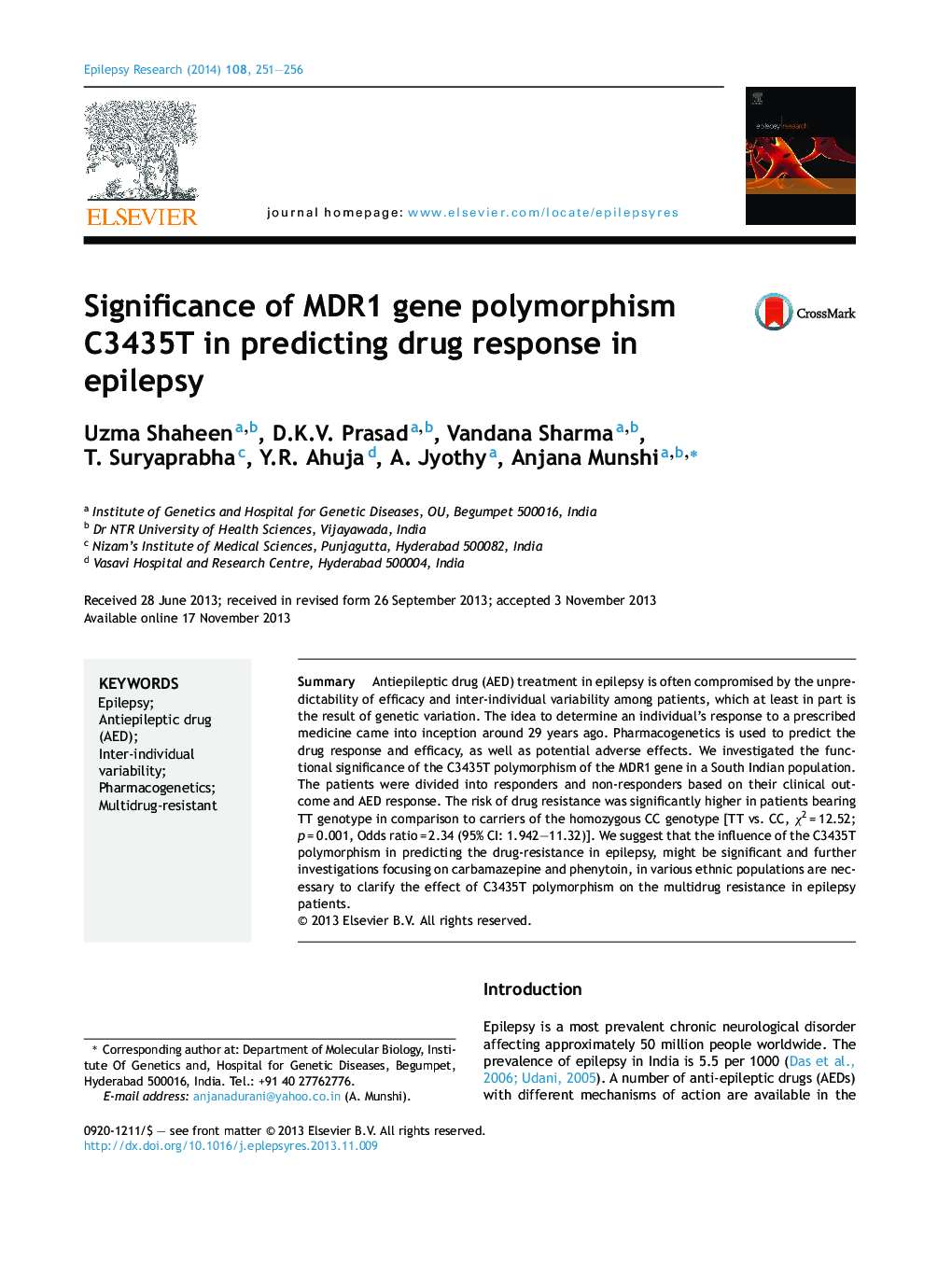| Article ID | Journal | Published Year | Pages | File Type |
|---|---|---|---|---|
| 6015792 | Epilepsy Research | 2014 | 6 Pages |
â¢Evaluated the association of genetic variation in the MDR1 gene with epilepsy.â¢C3435T polymorphism was evaluated in association with AED resistance.â¢TT genotype was found to be associated with drug resistance in patients on mono as well as poly therapy.
SummaryAntiepileptic drug (AED) treatment in epilepsy is often compromised by the unpredictability of efficacy and inter-individual variability among patients, which at least in part is the result of genetic variation. The idea to determine an individual's response to a prescribed medicine came into inception around 29 years ago. Pharmacogenetics is used to predict the drug response and efficacy, as well as potential adverse effects. We investigated the functional significance of the C3435T polymorphism of the MDR1 gene in a South Indian population. The patients were divided into responders and non-responders based on their clinical outcome and AED response. The risk of drug resistance was significantly higher in patients bearing TT genotype in comparison to carriers of the homozygous CC genotype [TT vs. CC, Ï2 = 12.52; p = 0.001, Odds ratio = 2.34 (95% CI: 1.942-11.32)]. We suggest that the influence of the C3435T polymorphism in predicting the drug-resistance in epilepsy, might be significant and further investigations focusing on carbamazepine and phenytoin, in various ethnic populations are necessary to clarify the effect of C3435T polymorphism on the multidrug resistance in epilepsy patients.
